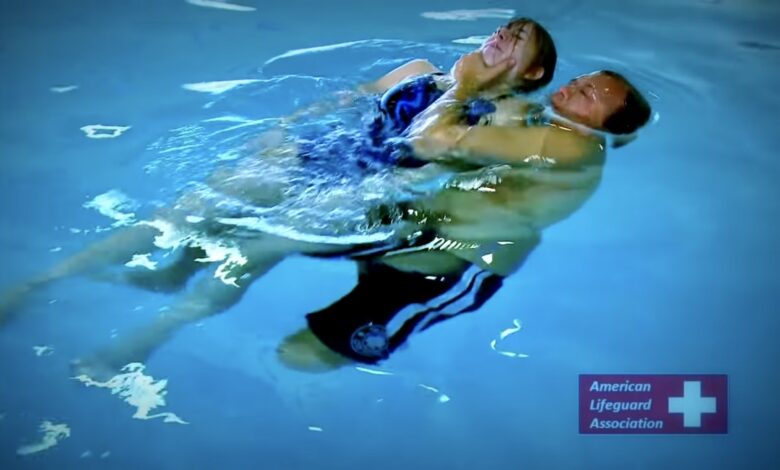Introduction to Water Safety and Lifeguarding and the Role of Lifeguard Certification

Water safety is a fundamental part of public health and sporting exercises including water bodies. Lifeguards act as bleeding edge defenders, answerable for preventing accidents and answering emergencies in aquatic environments. Their role is crucial in guaranteeing the prosperity of swimmers and beachgoers.
The Crucial Responsibilities of Lifeguards:
Lifeguards are prepared professionals entrusted with a scope of responsibilities pointed toward keeping a protected environment in and around water bodies. These responsibilities incorporate steady reconnaissance of swimmers, brief response to trouble signals, regulating first aid, and upholding safety rules.
The Significance of Lifeguard Certification:
Lifeguard certification is a central prerequisite that approves a singular’s capability in lifesaving techniques and emergency response. It guarantees that lifeguards have the essential skills, knowledge, and status to successfully deal with assorted circumstances.
Investigating Lifeguard Training Programs:
Lifeguard training programs are exhaustive and multifaceted, incorporating hypothetical knowledge, practical skills, and genuine situations. Members learn about water safety protocols, rescue techniques, casualty assessment, CPR, first aid, and communication systems crucial for powerful lifeguarding.
Jumping Profound into Lifeguard Skills:
A significant focal point of lifeguard training is on creating essential skills, for example, dynamic checking, water rescue moves, spinal injury management, and teamwork. Lifeguards go through thorough drills and recreations to improve their skills and assemble confidence in taking care of emergencies.
Water Safety Measures and Protocols:
Lifeguards are depended with carrying out and authorizing water safety measures to moderate risks and forestall accidents. They lead standard safety checks, keep up with legitimate hardware, and teach the public about safe swimming practices and pool manners.
The Essential Role of CPR and First Aid:
CPR and first aid training are critical parts of lifeguard certification programs. Lifeguards are prepared to direct cardiopulmonary revival (CPR), utilize automated external defibrillators (AEDs), and give quick medical help until professional assistance shows up.
Nonstop Learning and Skill Upgrade:
Lifeguards participate in continuous training and skill development to remain refreshed with the most recent safety standards, rescue techniques, and emergency protocols. Normal practice meetings, supplemental classes, and situation based training contribute to keeping up with status and capability.
Finding Lifeguard Classes Close to Me:
People keen on chasing after lifeguard certification can without much of a stretch find licensed training programs via searching on the web or reaching neighborhood aquatic focuses, community universities, or sporting facilities. These programs offer different degrees of certification in light of involvement and skill capability.
Benefits and Compensations of Lifeguard Certification:
Acquiring lifeguard certification opens ways to satisfying career amazing open doors in aquatic settings, for example, pools, water parks, beaches, and summer camps. Certified lifeguards procure a cutthroat compensation as well as gain significant experience, administration skills, and a feeling of achievement in shielding lives.
Career Pathways for Certified Lifeguards:
Certified lifeguards can investigate different career pathways inside the aquatics business, including roles as head lifeguards, aquatic bosses, swim teachers, lifeguard mentors, and aquatic facility supervisors. These roles offer development potential, professional development, and roads for having a constructive outcome on community safety.
Community Effect and Lifeguarding:
Lifeguards play a significant role in improving community safety by lessening drowning episodes, giving water safety education, and advancing a culture of watchfulness and readiness. Their presence ingrains confidence among swimmers and beach guests, encouraging a feeling that all is well with the world and delight.
The American Lifeguard Association’s Commitment:
The American Lifeguard Association (ALA) remains as a legitimate organization devoted to advancing aquatic safety and greatness in lifeguarding. ALA-certified lifeguards go through thorough training and stick to industry standards, making them profoundly sought-after professionals in the field.
Conclusion: Shielding Lives through Lifeguard certification:
In conclusion, lifeguard certification is a critical stage for people trying to become water safety professionals. Lifeguard training programs offer exhaustive education, involved insight, and essential skills important for compelling lifeguarding.
By getting certification from respectable organizations like the American Lifeguard Association, people can set out on a remunerating career committed to shielding lives and advancing water safety in networks the country over.
